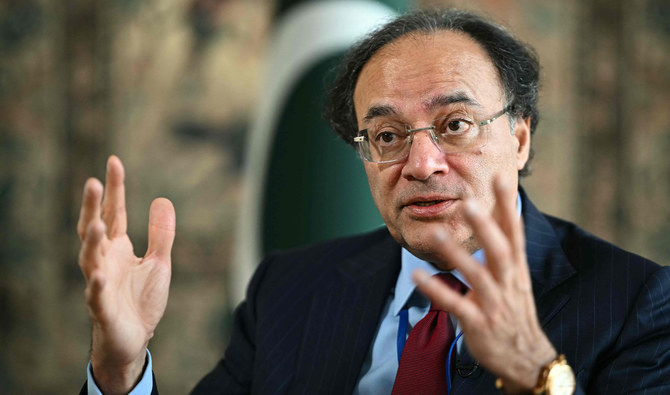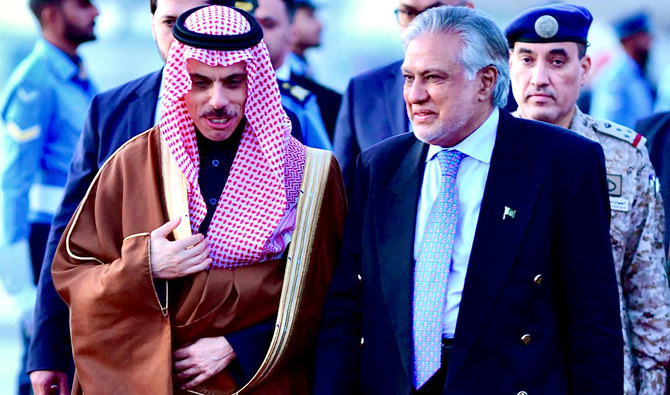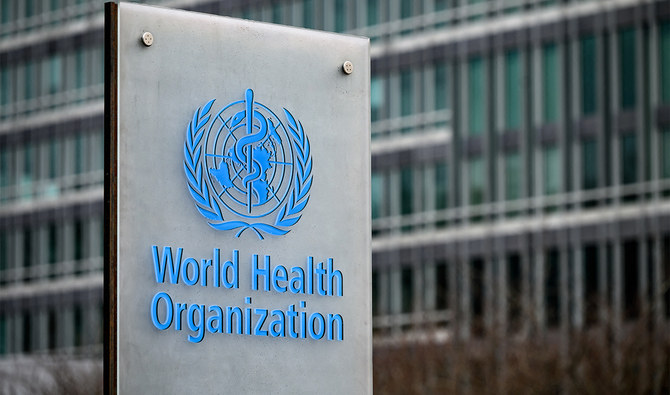TAUNTON, United Kingdom: Mohammad Amir will hope to enjoy another landmark occasion at Taunton when Pakistan face Australia there in a World Cup match on Wednesday.
The group fixture at southwest county Somerset’s headquarters sees Amir back at the ground where he made his return to first-class cricket in England three years ago.
Amir was the rising star of world cricket when his career came to a stunning halt during a Lord’s Test in 2010 after both he and new-ball partner Mohamed Asif were caught bowling no-balls on the orders of then Pakistan captain Salman Butt as part of a newspaper sting operation.
The trio all received five-year bans from cricket and jail terms.
That same 2010 season had seen Amir produce a superb display of swing bowling in taking three for 20 as Pakistan dismissed Australia for just 88 on the first day of a ‘neutral’ Test at Headingley.
Those skills remained intact as Amir marked his 2016 return to the first-class game in England in 2016 with a haul of three for 36 against Somerset at Taunton.
All three wickets — including that of former England opener Marcus Trescothick — owed much to late swing.
The intervening years have not been easy for Amir, however, and he almost missed what is his first World Cup after taking just five wickets in 14 matches before a recent one-day international series in England.
Amir did not bowl in the washed-out first match against England and missed the last four games with chicken pox. England won the series 4-0.
But having been left out of Pakistan’s preliminary squad for the World Cup, the 27-year-old made it into the final 15.
His World Cup debut was a rare Pakistan highlight after they slumped to 105 all out against the West Indies, with Amir taking three for 26 in a seven-wicket loss at Trent Bridge.
He was in the wickets again at the Nottingham ground, but this time in a winning cause, with two for 67 as Pakistan surprisingly beat tournament favorites England by 14 runs last week.
But Pakistan’s progress was checked by a total washout against Sri Lanka at Bristol.
Pakistan have won just one of their last 14 matches against champions Australia, the five-times World Cup winners.
That victory was inspired by Mohammad Hafeez’s 72 at Melbourne in January 2017.
And it was Hafeez’s 84 that laid the foundations for an impressive total of 348 for eight against England.
“We have not won many matches against Australia but we had not won too many against England either,” said Pakistan captain Sarfaraz Ahmed.
“But we have finally beaten England and that has given us a lot of positives.
“We will go with the aggressive approach we showed against England.”
The wicket-keeper expects to face an Australia side stung by a 36-run loss to India last weekend — their first defeat of this World Cup following wins over Afghanistan and the West Indies.
“We know Australia will try to come back and with (Steve) Smith and (David) Warner back they are at their best again,” said Sarfaraz.
“We respect all our opponents and are ready for them.”
Australia will hope opener Warner, for all he has already scored two fifties this World Cup, is back to his destructive best at Taunton.
Warner’s 56 off 84 balls against India — of which 48 were dots — helped contribute to a slow run-rate that left Australia with too much to do at the end of their innings.
The left-hander was also involved in the run-out of Australia captain and opening partner Aaron Finch.
But Finch backed Warner, who along with Smith is playing in his first major tournament for Australia since serving a year-long ban for ball-tampering.
“They (India) bowled very well to Warner and he needs some more time. He’s a world-class player and will get us off to a flyer,” said Finch.
Amir aims for another Taunton triumph as Australia await
Amir aims for another Taunton triumph as Australia await

- Pakistan to face Australia in a World Cup match on Wednesday
- Pakistan have won just one of their last 14 matches against champions Australia
Pakistan and IMF discussing new multi-billion-dollar program, finance minister says

- Muhammad Aurangzeb says Pakistan will at least be requesting for a three year program to help execute structural reform agenda
- Government of PM Shehbaz Sharif tasked with engineering economic turnaround by implementing unpopular belt-tightening measures
Washington: Pakistan has initiated discussions with the IMF over a new multi-billion dollar loan agreement to support its economic reform program, its new finance minister told AFP on Monday.
The South Asian nation is nearing the end of a nine-month, $3 billion loan program with the International Monetary Fund designed to tackle a balance-of-payments crisis which brought it to the brink of default last summer.
With the final $1.1 billion tranche of that deal likely to be approved later this month, Pakistan has begun negotiations for a new multi-year IMF loan program worth “billions” of dollars, Finance Minister Muhammad Aurangzeb said during an interview in Washington.
“The market confidence, the market sentiment is in much, much better shape this fiscal year,” said Aurangzeb, a former banker who took up his post last month.
“It’s really for that purpose that, during the course of this week, we have initiated the discussion with the Fund to get into a larger and an extended program,” he added.
An IMF spokesperson told AFP that the Fund is “currently focused on the completion of the current Stand-by Agreement program,” referring to the ongoing nine-month program scheduled for completion shortly.
“The new government has expressed interest in a new program, and Fund staff stands ready to engage in initial discussions on a successor program,” the spokesperson added.
During his visit to Washington, Aurangzeb will also attend the spring meetings organized by the IMF and World Bank, which kick off in earnest Tuesday, with two clear objectives: to help countries combat climate change, and to assist the world’s most indebted nations.
The meetings — which bring central bankers together with finance and development ministers, academics, and representatives from the private sector and civil society to discuss the state of the global economy — will kick off with the IMF’s publication of its updated World Economic Outlook.
Pakistan held elections in February this year which were marred by allegations of rigging, with opposition leader Imran Khan jailed and barred from running, and his Pakistan Tehreek-e-Insaf (PTI) party subject to a crackdown.
The shaky coalition that emerged, led by Shehbaz Sharif, is now tasked with engineering an economic turnaround by implementing a raft of unpopular belt-tightening measures.
“I do think that we will at least be requesting for a three year program,” Aurangzeb said. “Because that’s what we need, as I see it, to help execute the structural reform agenda.”
“By the time we get to the second or third week of May, I do think we’ll start getting into the contours of that discussion,” he added.
Pakistan has close economic ties to both the United States and China, which has put it in a tricky position as the two countries have embarked upon a costly trade war.
“From our perspective it has to be an and-and discussion,” Aurangzeb said when asked how the Sharif government plans to conduct its trading relationships with the world’s two largest economies.
“[The] US is our largest trading partner, and it has always supported us, always helped us in terms of the investments,” he said. “So that is always going to be a very, very critical relationship for Pakistan.”
“On the other side, a lot of investment, especially in infrastructure, came through CPEC,” he said, referring to the roughly 1,860-mile long China-Pakistan Economic Corridor designed to give China access to the Arabian Sea.
Aurangzeb said there was an “very good opportunity” for Pakistan to play a similar role in the trade war as countries like Vietnam, which has been able to dramatically boost its exports to the US following the imposition of tariffs on some Chinese goods.
“We have already a few examples of that already working,” he said. “But what we need to do is to really scale it up.”
As part of the structural reform program agreed to by the previous government, Pakistan is in the middle of a privatization drive to sell off its poorly-performing state-owned enterprises (SOEs).
The first SOE on the list is Pakistan International Airlines, the country’s flag carrier.
“We will get to know in the next month or so with respect to interest from prospective bidders,” Aurangzeb said.
“Our desire is to go through with that privatization and take it through the finishing line by the end of June,” he added.
If the PIA privatization goes well for the government, other companies could soon follow.
“We’re creating an entire pipeline,” he said, adding: “Over the next couple of years we want to really accelerate that.”
Pakistan cop who thrashed woman on train in viral video cleared of mysterious death

- Beautician Maryam was traveling home to Punjab when she was allegedly beaten by cop
- The incident is the latest in a long series of episodes of alleged police brutality in Pakistan
KARACHI: A policeman, who was allegedly seen beating a woman on a train last week in videos that have since gone viral, has been cleared of her mysterious death, a Pakistan Railways spokesperson said on Monday about the latest incident in a long series of episodes of police brutality in Pakistan.
Maryam Bibi, who worked as a beautician in Karachi, left the southern port city to spend last week’s Eid holiday with her family in Jaranwala in the Punjab province via Millat Express on April 7. During the journey, the woman was subjected to torture by Constable Mir Hasan near Hyderabad, according to a video of the incident and media reports. Two days later, her body was discovered near the Chani Goth railway station in Punjab.
She was subsequently buried by her family who initially thought she died after falling off the train in an accident, but the video of her torture forced railways authorities to set up a fact-finding committee to investigate the death.
The committee concluded that Constable Mir Hasan was present in Hyderabad at the time of the incident and not involved in the murder, according to Pakistan Railways spokesperson Babar Raza.
An earlier press release by Railways said the police constable got involved after Maryam started scattering the belongings of other passengers and that the policeman was forced to move her to another compartment. Railways said he was on duty on the train from Karachi to Hyderabad, in Sindh province, while the woman’s body was later found in Punjab. The press release said she had jumped from the moving train near Channigoth station.
“The call record, station attendance, and witnesses’ testimony confirmed that the constable was in Hyderabad when the woman fell or jumped from the train, and her body was found in the Multan division,” Raza told Arab News.
The Railways’ earlier press release said the policeman was arrested once the video of him allegedly beating up the woman was posted online. He has been suspended from duty and was out on bail in the Hyderabad area.
On Monday, Pakistani media widely reported the victim’s nephew as saying the constable had objected to the woman reciting verses from the Holy Qur’an out aloud and subsequently beat her. The nephew alleged that the constable forcibly took the woman with him and pushed her from the train at the next station.
Saudi FM in Islamabad, expected to meet top Pakistani officials today in investment push

- Saudi foreign minister’s visit comes a little over a week after Saudi crown prince met Pakistani PM in Makkah
- Crown prince has reaffirmed commitment to expedite investment package worth $5 billion that was previously discussed
ISLAMABAD: Saudi Arabia’s Foreign Minister Prince Faisal bin Farhan is expected to meet top Pakistani officials today, Tuesday, after arriving in Islamabad a day earlier on a two-day visit aimed at enhancing bilateral economic cooperation and pushing forward previously agreed investment deals.
The Saudi foreign minister’s visit comes a little over a week after Crown Prince Mohammed bin Salman met Pakistani Prime Minister Shehbaz Sharif in Makkah and reaffirmed the Kingdom’s commitment to expedite an investment package worth $5 billion that was previously discussed.
The Pakistani foreign office has said the Saudi delegation is expected to hold meetings with the Pakistani president, the prime minister, the foreign minister and other ministers, as well as the army chief and members of the apex committee of Pakistan’s Special Investment Facilitation Council, set up last year to oversee all foreign funding.
“A week after Prime Minister Shahbaz Sharif’s visit to Saudi Arabia (April 6-8), a high-level delegation of Saudi Arabia is coming to Pakistan,” the Pakistani information ministry said in a statement shared with journalists ahead of the FM’s arrival at the Noor Khan air base in the garrison town of Rawalpindi.
“The Saudi delegation will consult on the next stages of investment and implementation issues,” the statement added, saying Saudi Arabia’s planned investment in the Reko Diq gold and copper mining project would also be discussed during the visit.
On Sunday, Pakistani state media reported Saudi Arabia was likely to invest $1 billion in the mine project in Pakistan’s southwestern Balochistan province, one of the world’s largest underdeveloped copper-gold areas.
Riyadh was also interested in investing in agriculture, trade, energy, minerals, IT, transport and other sectors in Pakistan, the statement said.
“As a result of this visit, Pakistan’s export capacity will increase, joint ventures will be launched and new opportunities will be paved.”
The Pakistani foreign office said last week the Saudi delegation would comprise the foreign minister, minister of water and agriculture, minister of industry and mineral resources and deputy minister of investment as well as senior officials from the Saudi energy ministry and the Saudi Fund for General Investments.
Pakistan and Saudi Arabia enjoy strong trade, defense and cultural ties. The Kingdom is home to over 2.7 million Pakistani expatriates and the top source of remittances to the cash-strapped South Asian country.
Former diplomats and analysts said the latest visit showed a deepening of relations between the two brotherly countries.
“This is a high-powered Saudi delegation led by the foreign minister and it is purely focused on investments in Pakistan,” Javed Hafeez, a former Pakistani diplomat, told Arab News, pointing to a recent indication by Saudi Arabia that it would expedite a $5 billion investment package for Pakistan.
“This delegation will also be exploring different fields and options during the visit to materialize the investment pledges as quickly as possible.”
Aizaz Ahmad Chaudhry, Pakistan’s former foreign secretary, termed the visit “very significant,” saying the potential Saudi investment in Pakistan was a “welcoming step” in the Saudi-Pakistan friendship.
“The Saudi’s investments under the banner of the SIFC will be safe and secure, and this will help further deepen the ties between the two countries,” Chaudhry told Arab News.
Cash-strapped Pakistan desperately needs to shore up its foreign reserves and signal to the International Monetary Fund (IMF) that it can continue to meet requirements for foreign financing that has been a key demand in previous bailout packages. Pakistan’s finance minister, Muhammad Aurangzeb, is currently in Washington to participate in spring meetings of the International Monetary Fund and World Bank and discuss a new bailout program. The last loan deal expires this month.
Saudi Arabia has often come to cash-strapped Pakistan’s aid in the past, regularly providing it oil on deferred payments and offering direct financial support to help stabilize its economy and shore up its forex reserves.
Last year, however, Saudi Arabia’s finance minister said the Kingdom was changing the way it provides assistance to allies, shifting from previously giving direct grants and deposits unconditionally.
“We used to give direct grants and deposits without strings attached and we are changing that. We are working with multilateral institutions to actually say we need to see reforms,” Finance Minister Mohammed Al-Jadaan said at the World Economic Forum in Davos last January.
“We are taxing our people, we are expecting also others to do the same, to do their efforts. We want to help but we want you also to do your part.”
Saudi Arabia and other Gulf Arab states like the United Arab Emirates and Qatar have increasingly moved toward investing rather than extending direct financial aid.
Pakistan raises petroleum prices citing ‘increasing trend’ in international market

- Pakistan has increased the prices of petrol by 4.53 rupees ($0.016) to 293.94 rupees
- Government also increases price of high speed diesel by 8.14 rupees to 290.38 rupees
KARACHI: Pakistan has increased the price of petrol by 4.53 rupees ($0.016) to 293.94 rupees with effect from today, Tuesday, the finance ministry said in a statement, citing rising petroleum prices internationally.
The government also increased the price of high speed diesel by 8.14 rupees to 290.38 rupees, the post said.
The price hikes come as Pakistan has initiated discussions with the IMF over a new multi-billion-dollar loan agreement as its current nine-month, $3 billion loan program expires with the disbursement of a final $1.1 billion tranche likely to be approved later this month.
Reforms linked to that bailout, including an easing of import restrictions and a demand that subsidies be removed, fueled record inflation, with the rupee hitting all-time lows. Authorities also raised petrol and diesel prices to record highs to meet conditionalities.
“The prices of Petroleum products have seen an increasing trend in the international market during the last fortnight,” the finance ministry said as it announced the new prices.
“The Oil & Gas Regulatory Authority (OGRA) has worked out the consumer prices, based on the price variations in the international market.”
Under the last IMF bailout, Pakistan was told to prevent further accumulation of circular debt in its power sector, arising from subsidies and unpaid bills. For a new program, the South Asian nation will need to implement reforms to reduce costs by improving electricity transmission and distribution, moving captive power into the grid, improving governance, and combating theft.
It will also have to maintain power and gas tariffs at levels that ensure cost recovery, with adjustments made to safeguard the financially vulnerable, through existing progressive tariff structures.
In a report released in January, the IMF noted Pakistan missed its target for power sector arrears, largely due to lower-than-expected recoveries and tariffs.
WHO warns of falsified cough syrup ingredients seized in Pakistan

- Five contaminated batches of propylene glycol falsely labelled as made by Dow Chemical units in Asia and Europe
- Contaminated cough syrups linked to deaths of more than 300 children globally since late 2022
The World Health Organization issued an alert on Monday warning drugmakers of five contaminated batches of propylene glycol, an ingredient used in medicinal syrups, that appear to have been falsely labelled as manufactured by Dow Chemical units in Asia and Europe.
The Drug Regulatory Authority of Pakistan (DRAP) issued three alerts between January and March over high levels of ethylene glycol (EG), an industrial solvent known to be toxic, found in drums purportedly made by subsidiaries of Dow Chemical in Thailand, Germany and Singapore.
DRAP sent suspect drums of propylene glycol, a sweet-tasting alcohol used in over-the-counter medicines such as cough syrups, for testing. The samples were found to have EG contamination of 0.76-100 percent, according to the WHO. International manufacturing standards say only trace amounts of EG, below 0.1 percent, can be considered safe.
Contaminated cough syrups made in India and Indonesia have been linked to deaths of more than 300 children globally since late 2022. The medicines were found to contain high levels of EG and diethylene glycol, leading to acute kidney injury and death. In the Indonesia case, authorities found that one supplier had placed false Dow Thailand labels onto drums containing EG that it sold to a distributor for pharmaceutical use.
Several of the batches seized by DRAP were labelled as having been manufactured in 2023, the WHO said, months after the agency issued a global alert calling on drugmakers to verify the quality of their suppliers.
The WHO said Dow confirmed that the materials identified in its Monday alert and found by DRAP were not manufactured or supplied by the company.
“The propylene glycol materials identified in this alert are considered to have been deliberately and fraudulently mislabelled,” the WHO said, noting batches may have been distributed to other countries and still be in storage.
Dow did not immediately respond to a request for comment.
The WHO alert comes the same week regulators in Tanzania and Rwanda joined Nigeria, Kenya and South Africa to recall batches of Johnson & Johnson children’s cough syrup after Nigeria said it found high levels of diethylene glycol, an industrial solvent known to be toxic.
The batch of Benylin Paediatric syrup recalled was made by J&J in South Africa in May 2021, although Kenvue now owns the brand after a spin-off from J&J last year.










